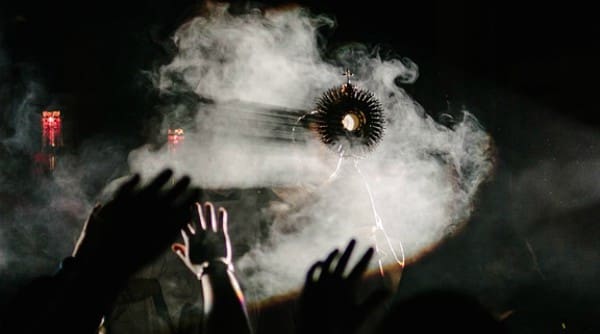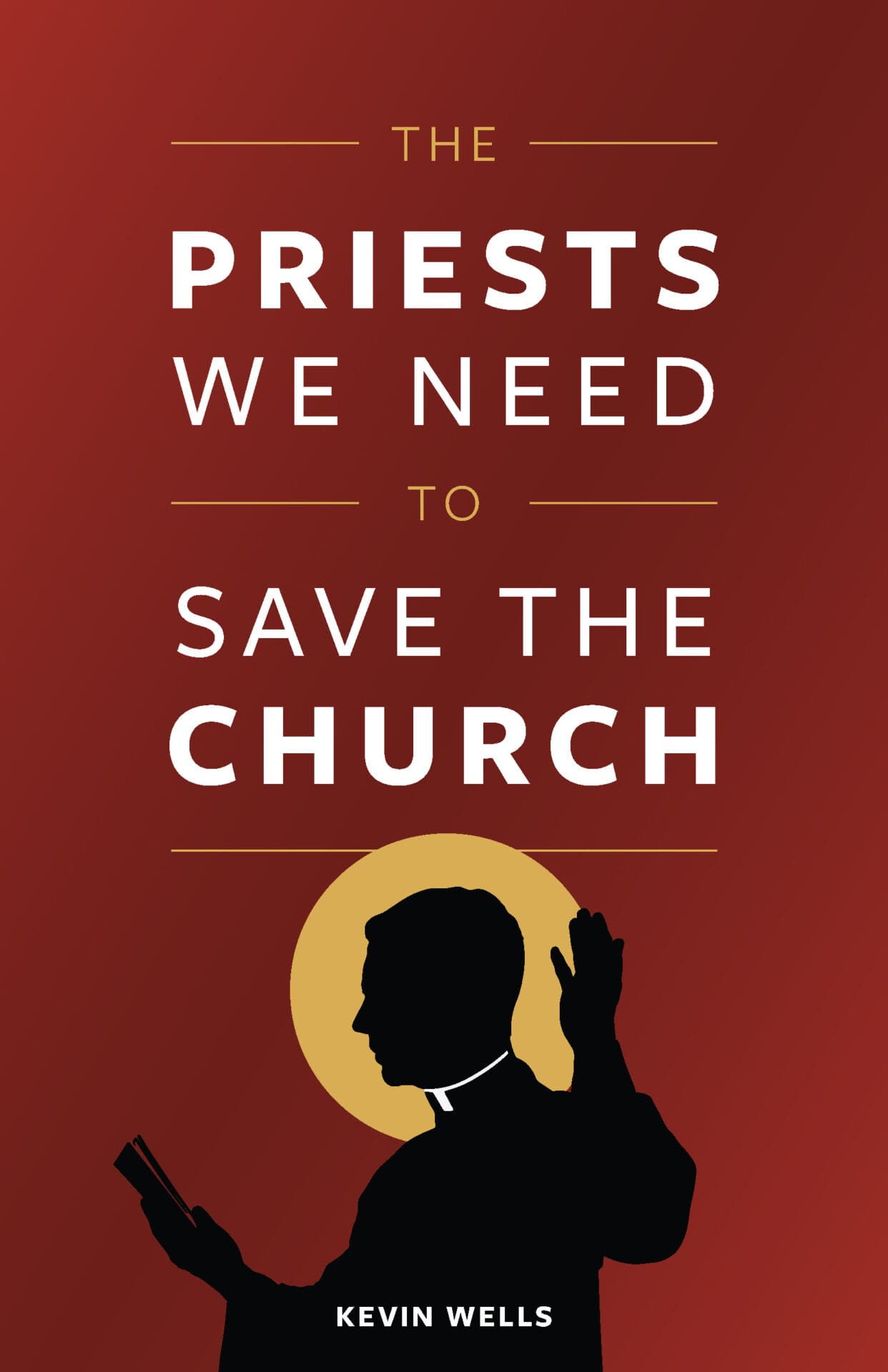An Ax, a Tomahawk, and the Night of Lights
Eight years after the violence visited upon Tommy, I asked God for some of my own. I didn’t need Him merely sharpening me or firming me up. Specifically, one night in December at around midnight, I requested his ax at the root. The moment the request left my mouth, it seemed like a drunken dare, but I didn’t take it back. I just kept repeating it.
It was on the eve of the last day of a long weekend of meditative prayer, during which, one by one, my sins, failings, and omissions had washed like sludgy red tidewater into my conscience. I dropped to my knees on a graying, gap-tooth-planked dock on the banks of the Potomac River, mere steps from where John Wilkes Booth had hidden on the night he gunned Abraham Lincoln down. Gusts whipped up small waves on this wintry night, and a countryside blanket of stars and a nearly full moon cast what seemed like floods of Bethlehem light on the brutality of my request. Tears eventually came, because I felt I had passed into a wild land of consequence, where God would grant my request.
Wise parents had taught my seven siblings and me that God didn’t waste these types of prayers. I had returned this weekend for yet another men’s silent retreat at one of America’s quaintest prayer hideaways, a large aging brick structure that rested like a cheerful postcard of harmony beside a sheer cliffside, overlooking a wide expanse of the Potomac. Same cold weekend as many times before. Same pleasant Jesuits. Same contemplative retreat structure. Same tender silence with Christ. Perhaps because I had just turned forty, this weekend turned uncharacteristically solemn and introspective soon after I had dropped my bag off in my room. Thus began a self-analysis, tracing the development of my life since the time I first attended the weekend retreat two decades earlier as a college student.
As the weekend progressed, self-awareness began to poke uncomfortably at my conscience. I had allowed a dissolution of standards into my life; I saw where unchecked pride, restlessness, and sloth had closed off any real opening to grow into a mature Catholic adult and a devoted husband and father. Even after Tommy’s parting words on the significance of carrying one’s cross, I still too often carried mine like a toddler moaning over a splinter. Charitable acts and a spirit of generosity were scattershot. Attempts at virtue were not vigorous pursuits but damning halfmeasures. Of course, the sacraments produced saving fruit, but all too often, the sanctifying grace just seemed to hibernate. Though Loyola Retreat House rested among more than two hundred peaceful acres of rolling woodland, a shadow of dispiritedness followed me everywhere I went.
My post-retreat pattern had become like a scratch on a vinyl record that the needle wouldn’t move past. During the retreat weekend, Christ would enlighten me on what was required to grow in virtue and move closer to His Sacred Heart. After a few Masses, Benediction, a series of penetrating talks, contemplative prayer, Adoration, and finally Confession, my soul would be stretched into such a state that I’d want to take on the identity of post-Pentecost Peter or blue-painted William Wallace. I achedto bolt home in a victorious gallop of renewed spirit and sanctity. But always — every single time — the burning enthusiasm and resolutions stoked on retreat would last only until I experienced my first irritation at home. It was a shameful realization, always reminding me of disgraced middleweight champion boxer Roberto Durán throwing up his arms and quitting mid–title fight against Sugar Ray Leonard.

So it was on this bitter, starlit night on the dock that I carried with me this heaviness; the retreat house had developed into what seemed a spiritually profitless weekend incubator. The homemade chocolate chip cookies, the restfulness, the stunning riverside sunsets, the renewed friendships with men, and the spiritual insights were satisfying to soul, mind, and body but had seemingly proven entirely ineffectual. Whatever it was — sloth, immaturity, or some other spiritual obstacles that prevented an encounter with God — I saw that I had become an impediment to myself. The most tangible consequence of this reality was, of course, its lacerating impact on Krista and our three young children.
But what discouraged me the most was that I knew God had repeatedly rolled out a red carpet of invitations to draw me closer to Him. Infertility, an arthritic body, Tommy’s murder, several thousands of dollars lost in an adoption scam, and other devastations were His rescuing fires of refinement. I understood that God often operated most effectively by entering through wounds; that summer night on his back deck, Tommy had broken it down as clearly as one is able. God had repeatedly shown me that He wanted my soul close to Him; that He didn’t want my eyes to wander from His. But I had habitually rejected the invitations. Once I had managed to navigate and triumph over a particular cross, I lazily let any intimacy God had kindled go to seed. Our “strengthened” friendship quickly became subverted and hollower than a dead tree. In the words of Johnny Cash, “there’s no fence to sit on between heaven and hell.”
So on this dock, on this night, it became clear. If I didn’t truly begin to fight for my soul and develop into the man God willed me to become, hell was a real possibility — no matter how infrequently my pastor, priests, friends, or anyone, for that matter, discussed it. Oddly, my thoughts didn’t seem overwrought. Instead, they felt reasoned, perilously interconnected with logic, Scripture, and Catholic doctrine. I felt a preternatural indignation, as if God had become a night watchman looking down into my soul, reclined on a three-legged stool, stroking His beard and, with furrowed brow, slowly shaking His head. Perhaps Booth had felt this same way on this riverbank.
The tree needed to be kicked over. It came to me that God had sent His own Son to endure violence for each of His beloved created souls. So why wouldn’t I want to fight for my own soul with the same violence? I knew that an acceptance of pain, in any manner God chose to administer it, would push me into grace.
He made the appeal to my soul, and the voice of the Spirit was clear: “Die to yourself, Kevin. Live in me now. Just come.” I needed to be affected, annihilated for His grace, as was the heart of Saul when he traveled to Damascus.
Small waves slapped the dock, and the moonlight seemed like God’s swinging lantern hanging down from heaven.
So, I requested a spiritual bolt of lightning: “Violence, God.”
Tears fell, and, strangely, an overwhelming peace began to cover me.
After a long while, I stepped off the dock and began the climb up the hill to my bedroom. From out of the creek in the forest’s darkness came a startling noise. A beaver cracked the midnight silence by slapping his fat tail on the surface of the water, which released a surge of chills that traveled the length of my body.
Exactly one month later, almost to the exact second, it seemed as if someone had flung a tomahawk into the back of my skull. My brain had hemorrhaged.
For the better part of a week, I was as close to death as I imagine one is able to be. One night, when I was throwing up inside an MRI tube, I couldn’t tell nurses I was choking on my vomit because the sloshing blood in my brain had rendered me unable to speak. I was powerless. I had perfect clarity of thought, though, and this unpleasant consideration reared its head: So, this is what it feels like to die. This is Your plan for my end. After five days in neuro-ICU, I could hardly move. I often forgot how to breathe. During hallucinatory moments, I tore shunts out of my head and swiped at them as if they were clouds of late summertime mosquitoes.
The hospital chaplain, Fr. Bill, told Krista a demonic presence had taken up residence in my room. Krista had already known it to be the case. Fr. Bill visited as often as three times a day to pray over and anoint me. He handed Krista a consecrated Host in a golden pyx and asked that she hold it above me so the demons would flee. He told her to pray continually for my soul and to beg St. Michael’s help.
“So, this is Your plan for my end,” I thought in my smelly, threadbare hospital gown inside the MRI tube that suddenly seemed like a coffin.
When a series of catheter embolizations failed to control the flow of blood, my chief neurosurgeon went down the dark alley he had hoped to avoid. He opened the back of my head to untangle the arteriovenous malformation (AVM) and remove the nest of vessels releasing blood into tight crevices in my brain. But the surgery failed. The surgeon couldn’t reach the malformation. He told Krista that if he had proceeded further into my cerebellum, I would have died.
It seemed to most, then, that this would be my last day. Krista begged for prayers.
A priest by the name of Fr. Jim Stack, from a parish an hour away, answered the summons to anoint me. It was the right call. Not only was he Tommy’s best friend, but he had just started a healing ministry, inspired by a mystifying, life-changing event he had experienced a short time earlier on his climb to the Shrine of Our Lady of Guadalupe in Mexico.
When he entered my darkened room, Fr. Stack and his healing assistant, Mary Pat Donoghue, had just finished praying the Chaplet of Divine Mercy and calling on the saints of Maryland. Since the surgery, I had been incapacitated and was unresponsive.
Fr. Stack — an old weightlifter and blue-collar priest whom Tommy had called Stackman — told me later that he bent down and whispered one question into my ear: “What saint do you want to intercede for you?” My response, he said, stunned him. “Bring my uncle down,” I whispered, my first words of the day. “I need Tommy now.”
So Stackman stood up and started to call on his best friend. “Hey, Tommy. Hey, buddy,” he pleaded. “Kevin needs you now. He’s calling for you to save his life.” What unfolded next was one of those miracles that slips through the back door because all the front doors are sealed shut.
What seemed a benevolent fire descended into the room, and Stackman and Mary Pat suddenly found themselves in the middle of something marvelous and supernatural. Both almost fainted.
“There were lights everywhere,” Fr. Stack said. “Everything in your room took on light. And all of a sudden, the presence of Tommy and the saints surrounded your bed, and everything took on a great warmth. I felt the whole heavenly court around you. It was overwhelming.”
Stackman and Tommy collaborated well. The next day, I received an angiogram. It came back clean. The trapped blood and fluids had vanished; the AVM had disappeared. Doctors scratched their heads.
God’s violence had run its course. I would be well.
Now it was up to me.
To appease the boredom of my long hours of recovery resting in bed, I decided to write about my experience of God’s graces in brokenness; it was later published in a book.
Then I started to think more about Tommy — and more about the supernatural work of holy priests.
+
This article is adapted from a chapter in The Priests We Need to Save the Church by Kevin Wells, which is available from Sophia Institute Press.
Art for this post on the Priesthood: Cover and interior images used with permission





